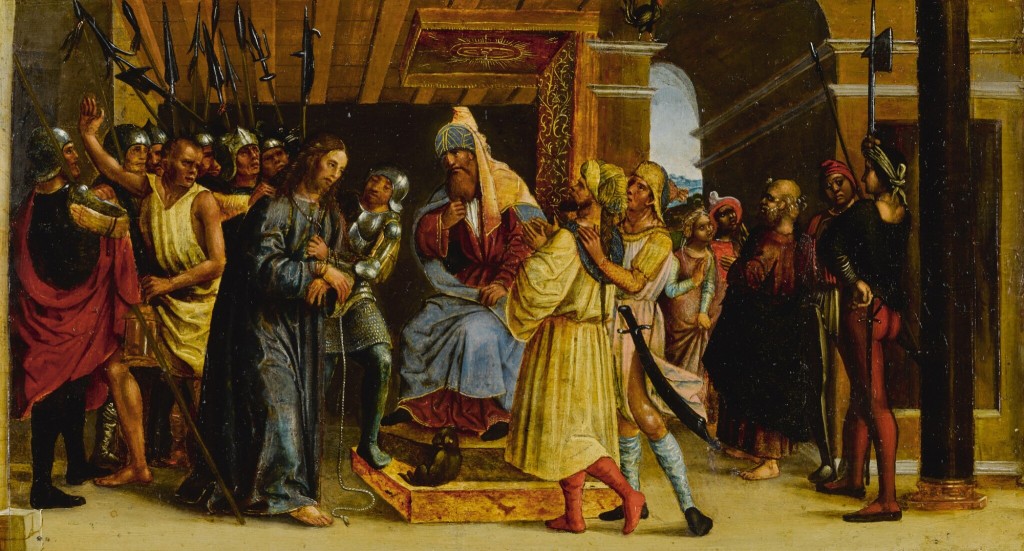Did you see Michael Cohen’s op-ed in The Daily Beast, “The Antisemitic Innuendo in Harrison Butker’s College Commencement Speech.” Progressives are relentless this election season. Antisemitism is rampant on college campuses in pro-Hamas demonstrations the corporate media adores, but when Butker alerts the audience to a very real problem with the propagandistic definition of antisemitism used in new federal legislation, the Daily Beast uses that very propagandistic definition to accuse Butker of antisemitism (and once more misrepresenting his remarks concerning women and the family for good measure).
The bill in question is House Resolution 6090 (118th Congress), the Antisemitism Awareness Act of 2023, that “provides statutory authority for the requirement that the Department of Education’s Office for Civil Rights take into consideration the International Holocaust Remembrance Alliance’s (IHRA) working definition of antisemitism when reviewing or investigating complaints of discrimination based on race, color, or national origin in programs or activities that receive federal financial assistance.” Those of us who have been following the trajectory of this definition have long worried that Congress would adopt as its working definition the IHRA’s laundry list of antisemitic manifestations.
What does that list include? Everything and the kitchen sink (you can read it here), including what Butker references in his speech, the suggestion that Jews participated in killing Jesus. Alongside this example is the example of blood libel, a false accusation historically leveled against Jewish communities alleging that they kidnap and murdered Christian children to use their blood in religious rituals, particularly for Passover. This accusation has been a recurring theme throughout history, often leading to persecution and even massacres of Jewish communities. The blood libel persists, and so we educate and advocate for religious tolerance. But the question of whether Jews participated in the killing of Jesus—assuming Jesus is a historical figure—is a historical question.
Jesus was a Jew, the Messiah according to the Christian tradition, predicted in Second Temple Judaism, and the point of the Gospel of John (who was also a Jew) was to bring everybody to worship the King of the Jews. It states in John’s gospel that somebody wrote all this down so that people might believe Jesus is the Messiah, the Son of God, and seek salvation in that belief.

Jews don’t believe Jesus is the Messiah obviously. According to Jewish teaching, the Messiah has yet to appear. Thus Jews during the first century CE regard Jesus’ claims (or claims attributed to him) to be heresy. At trial, under Mosaic law, Jesus was convicted of a number of crimes, including practicing sorcery/witchcraft, performing exorcisms, violating the Sabbath restriction, threatening to destroy the temple, and, of course, claiming to be the Messiah (Jesus was quite the troublemaker). The adjudication of case took place in the Sanhedrin, a Jewish judicial body, with the high priest Caiaphas presiding. Up to that point, I think it is safe to say that the matter was a Jewish affair.
Because the Jewish people under Roman colonial rule did not have the authority to put a man to death, Jesus was turned over to Pontius Pilate, the governor (or prefect) of Roman-occupied Judea. There Jesus was to be tried for his claim to be the King of the Jews. The Jewish elders asked Pilate to condemn Jesus (i.e., execute him), arguing that Jesus had transgressed Roman law, as well, since by claiming to be king he had committed a treasonous act against the true emperor, who was at that time Tiberius.
There’s a lot I am going leave out, obviously. But an item that should be mentioned is when Pilate sends Jesus to appear before Herod Antipas, since Jesus was a Galilean and that was Herod’s jurisdiction. Not insignificantly, Herod was the son of Herod the Great who, while of Edomite and Nabatean descent, was raised as a Jew. Herod found Jesus to be of no threat and sent him back to Pilate. This is important because in John’s gospel, Pilate also seems to find Jesus to be no threat and, more than sit in judgment of the man, appears to advocate for him during the proceedings. John describes Pilate as very troubled by the whole affair, having the man pacing back and forth.
Hence the controversy over whether John minimizes the actions of the governor while exaggerating the role of the Jewish authority. Two points are key here, and together they have to do with the problem of legitimacy that translate power into authority: (1) in law and theory, provincial governors possessed total control over their respective jurisdictions; (2) in practice, provincial governors worked closely with leaders of the provinces under their jurisdiction to secure hegemony.
To be sure, it was Pilate who ultimately ordered the execution of Jesus, obvious of course since, as noted earlier, the Jewish elites did not have the authority to carry out capital punishment. However, according to John’s account, while Pilate ordered the execution, he appears to have done so reluctantly, aggressively pushed into the deed by the Sanhedrin. To say that it is antisemitic to recall this history and apply this interpretation—and anybody who knows the story of Catholicism knows that the Gospel of John plays a central role in that story—almost feels designed to make Catholicism, especially the Latin Mass variety, appear inherently antisemitic.
For those readers who do not know the significant of John’s Gospel, it is this Gospel that emphasizes Jesus’ divinity, presenting him as the living and eternal word of God who became incarnate for the salvation of humanity. The concept of the Logos (the Word), through which all things were created, the incarnation of Jesus as the Word made flesh, and the promise of eternal life through belief in him (salvation) are unique elements in John’s Gospel. Many foundational Catholic teachings find their origin in the Gospel of John. The sacraments, especially baptism and the Eucharist, the doctrine of the Trinity, which teaches the unity of God in three persons—Father, Son, and Holy Spirit—all these are found there. John’s Gospel also provides key insights into Jesus’ ministry, the miracles, his teachings on love. And then there is the passion, Jesus’ death and resurrection. Indeed, John’s Gospel provides the most detailed account of the passion. It is John’s Gospel that is centered in the Catholic liturgy, particularly during Easter.
Does Butker believe that Jews as a mass have agency and that Jesus was killed by the entire Jewish population past and present? I don’t know. I know he didn’t say that. What he said was “Congress just passed a bill where stating something as basic as the biblical teaching of who killed Jesus could land you in jail.” To determine whether jail is among the consequences of the legislation readers can determine for themselves by reading the text of the bill. But was Butker accurate when he said that the matter of who killed Jesus is a biblical teaching? Yes, he was. Is he right to be concerned that Congress would pass legislation establishing any consequences for expressing opinions based on biblical teaching? For sure. The First Amendment protects religious liberty and the right to express one’s beliefs and opinions. Yet the fact that the House of Representatives legislated on the basis of IHRA’s working definition of antisemitism received minimal media attention. How many days are we out from Butker’s speech? It’s still front-page news.
The campaign to cancel Harrison Butker is one of the most extreme cases of woke progressive fury I have seen to this point. This story has dominated the news cycle for several days now, as the speech is mined for new seams of outrage. I never thought I would say this, but the progressive left is really starting to sound Christophobic. The loathing of Christendom is part and parcel of the anti-conservatism/traditionalism, anti-family, and anti-whiteness of the woke left. No doubt Butker is getting it with both barrels because the left is losing their shit over the pending return to power of Trump and the MAGA Republicans. The heightened race baiting—seen in Joe Biden’s Morehead College speech (see the coda to The Hunt Family and the Basket of Deplorables) and the resurrection of the “Hands up, don’t shoot” myth (The Problematic Premise of Black Lives Matter)—is yet another indicator of the panic.
